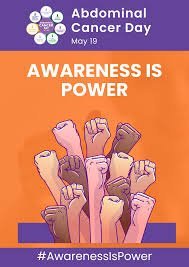Understanding Abdominal Cancer: Causes, Symptoms, and Treatment
Understanding Abdominal Cancer: Causes, Symptoms, and Treatment

What is Abdominal Cancer?
Abdominal cancer refers to various types of cancer that develop within the abdominal cavity. This area houses several vital organs, including the stomach, liver, pancreas, and intestines. Abdominal cancer can affect any of these organs, leading to significant health challenges.
Common Types of Abdominal Cancer
Stomach Cancer
Stomach cancer, also known as gastric cancer, originates in the lining of the stomach. It often goes undetected until it reaches advanced stages.
Liver Cancer
Liver cancer can be primary, starting in the liver, or secondary, spreading from other parts of the body. Hepatocellular carcinoma is the most common type of primary liver cancer.
Pancreatic Cancer
Pancreatic cancer is particularly aggressive and has a low survival rate. It typically starts in the ducts of the pancreas.
Colorectal Cancer
Colorectal cancer affects the colon or rectum. It's one of the most common types of cancer and is highly treatable if detected early.
Causes and Risk Factors
Several factors contribute to the development of abdominal cancer. These include:
- Genetics: Family history can increase the risk.
- Lifestyle Choices: Smoking, excessive alcohol consumption, and a diet high in processed foods.
- Chronic Conditions: Conditions like cirrhosis and chronic pancreatitis.
- Age: Risk increases with age.
Symptoms to Watch For
Symptoms vary depending on the type and stage of cancer but often include:
- Abdominal Pain: Persistent or severe pain.
- Weight Loss: Unexplained weight loss.
- Nausea and Vomiting: Frequent and unexplained.
- Changes in Bowel Habits: Diarrhea, constipation, or blood in the stool.
- Fatigue: Persistent tiredness not alleviated by rest.
Diagnosis and Detection
Early detection is crucial for effective treatment. Diagnostic methods include:
- Imaging Tests: CT scans, MRI, and ultrasounds to detect tumors.
- Endoscopy: Used for detecting stomach and colorectal cancers.
- Biopsy: Tissue sample analysis to confirm cancer.
Treatment Options
Treatment varies based on the type and stage of cancer but commonly includes:
Surgery
Surgical removal of the tumor is often the first line of treatment.
Chemotherapy
Uses drugs to kill cancer cells or stop their growth.
Radiation Therapy
Uses high-energy rays to target and destroy cancer cells.
Targeted Therapy
Involves drugs that specifically target cancer cell mechanisms.
Prevention and Early Detection
Preventive measures include:
- Healthy Diet: Rich in fruits, vegetables, and whole grains.
- Regular Exercise: Helps maintain a healthy weight.
- Screening: Regular screenings for those at high risk.
Living with Abdominal Cancer
Coping with abdominal cancer involves physical and emotional support. Patients should seek support from healthcare providers, counselors, and support groups.
Conclusion
Abdominal cancer poses significant health risks, but early detection and treatment can improve outcomes. Awareness of symptoms and risk factors, along with a healthy lifestyle, can help in prevention and early detection. If you experience any symptoms or have risk factors, consult a healthcare professional promptly.
What's Your Reaction?











![Wireless Connectivity Software Market Size, Share | Statistics [2032]](https://handyclassified.com/uploads/images/202404/image_100x75_661f3be896033.jpg)



